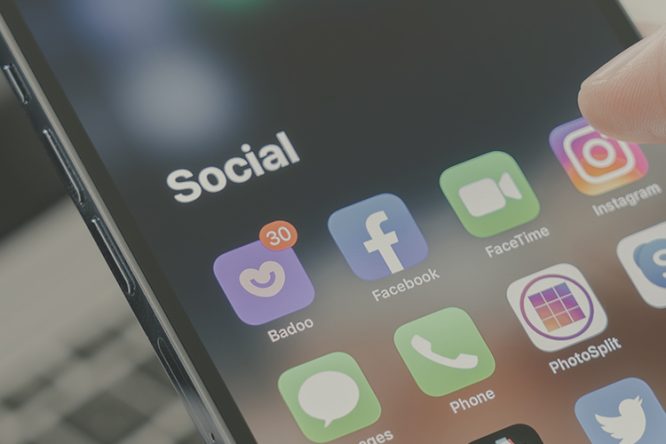Guest post by Andrew Lock, author of Walt Disney’s Way: How to Build a Better Business Using the Magical Marketing Strategies of Walt Disney. We were fortunate to have Andrew as the guest speaker at Varsity’s 150th Sales & Marketing Roundtable.
How My Journey Began
My journey with Disney started when I was a young child. I was sitting in a doctor’s waiting room and picked up a Reader’s Digest, which had an article about Walt Disney. His story really resonated with me, to the extent that I’ve studied Walt and The Walt Disney Company ever since. Throughout my life I’ve done a deep dive into understanding the practical lessons from Walt, who has been established as an incredible visionary and dreamer. For those in sales and marketing, there are so many lessons to learn from him.
Disney Today
Disney is an absolute Goliath of a business. They own 12 theme parks around the world, 40 hotels and resorts, movie studios, record companies, TV stations, cruise lines and more. Their annual revenue is $45,000,000,000.
What’s unique about Disney is that not only are they one of the most profitable companies in the world, they are one of the top five most admired companies.
“But Andrew, What Does My Business Have in Common with Disney?”
Since you are in senior living, you may be asking yourself, “What does my business have in common with a Disney theme park?” If you boil down the core aspects of running a business, you can identify a number of things that you have in common:
- You want to stay profitable
- You want happy clients
- You want to see enthusiastic, engaged and loyal staff
- You face competition and need to stand out from the crowd
- You continually face rising costs
The key is looking at the principles of what Disney does well, and adapting those into your business.
Principle 1: Deliver a Positive and Memorable Experience
The first principle is most important and it encompasses everything. For many years, customer service was the highest priority for a business. Now we’ve moved beyond it, and experience is the biggest thing that can separate us from other businesses. Customers might not be consciously thinking that they want an experience, but subconsciously, they do.

If we wow customers with a positive and memorable experience, then they will tell their friends. That is the best form of recommendation in any space and the easiest sale you’ll ever have. Walt knew that too, which is why 97% of visitors at Disney are repeat visitors.
Example: Droid Depot at Disney’s Hollywood Studios. Disney decided to sell remote control droids, from the Star Wars movies, but rather than just sell boxes in a store, they created an experience. A cast member helps you choose parts for your droid, assemble it and operate it. You have fun playing with it on the showroom floor. What’s even more amazing is that, not only does a droid cost $100 plus tax, but you have to make a reservation to have the privilege of buying it. They’re selling something so enjoyable that customers forget they’re there to buy.
The lesson? Think far beyond the normal boundaries in your industry, to realize how much further you can — and should — go to create memorable experiences.
Principle 2: Premium Pricing
Many people wrongly believe that price is the most important factor in making a buying decision. A lot of salespeople have trepidation because they think that customers are concerned about price. There’s a danger in dwelling too much on price when it is not the most important factor for most people.
Disney is proud of owning the highest priced theme parks, because they know that this enables them to provide a better product. This is really the biggest advantage of charging more.
So, sell with confidence and enthusiasm that you’re delivering an enormous value. Don’t be shy that you charge more because it enables you to deliver a better product. Be proud of being a premium provider at the top of your industry.
Principle 3: Mind Your Language
The third principle is all about the words that we use with customers. Walt invented the Disney language that he trained all of his staff to use. He wanted them to remember that they are putting on a show. Employees are called cast members, customers are called guests, a group of guests is the audience, the experience is the show, and uniforms are costumes. Rather than just being clever, Walt found that this terminology made a difference. When staff thought of customers as guests rather just a transaction, they became happier and more welcoming.
We’re not going to use the exact same terminology as Disney, but how can we follow this principle?
Examples:
What most say: What you should say:
“Price” “Investment”
“Problem” “Challenge”
“No problem” “You’re welcome/My pleasure”
“Sign up” “Register/Join”
“Contract” “Paperwork”
“I don’t know” “Let me find out for you”
The words that we choose and use in our business really do make a difference.
Principle 4: The Power of a Name

Walt encouraged cast members to use guest names as much as possible. One of the ways Disney facilitates this is by giving out badges when you first get to the park. They have pins for birthdays, first-time visitors, honeymooners, anniversaries, family reunions, etc. And they write the person’s name on the badge itself. So later that day, a cast member might come up to a child and ask them by name how their birthday is going. The child may ask how they know their name and that it’s their birthday, and the cast member will say, “Disney magic.”
Disney realized that it’s very powerful when we learn and use clients’ names as much as possible. Even if we’re not good with names, we need to make the effort, as it’s so important.
Principle 5: Pay Close Attention to Details
When we are busy, it’s so easy to overlook the details. But our clients and guests do notice. I went into a chiropractor’s office and the first thing I noticed was there were a lot of marks on the walls. When I went up to the counter, I saw a computer monitor with a thick pile of dust that hadn’t been cleaned in years, and tangled cables spilling onto the floor.
I noticed all of these things as a first-time visitor, but if we aren’t walking in our customers’ shoes, we cease to register those details. But attention to detail matters, because guests do notice. Which is why to this day, on Main Street in Disney World, they repaint the lampposts every single night. Because they’re the first things people see when they come into the park. So, to stand out from the crowd, you need to pay attention to the smallest details.

Beyond Walt’s creative genius, he was a master marketer and understood the psychology of how to interact with people. I hope you’ve been inspired, and see how Walt’s principles can be applied in all aspects of your business.



